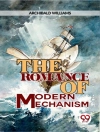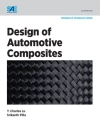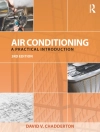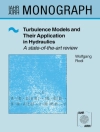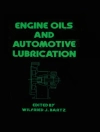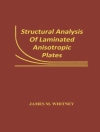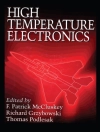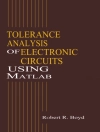This book focuses on droplets and sprays relevant to combustion and propulsion applications. The book includes fundamental studies on the heating, evaporation and combustion of individual droplets and basic mechanisms of spray formation. The contents also extend to the latest analytical, numerical and experimental techniques for investigating the behavior of sprays in devices like combustion engines and gas turbines. In addition, the book explores several emerging areas like interactions between sprays and flames and the dynamic characteristics of spray combustion systems on the fundamental side, as well as the development of novel fuel injectors for specific devices on the application side. Given its breadth of coverage, the book will benefit researchers and professionals alike.
Spis treści
Part I Multiphase Flow Fundamentals.- Introduction to Frontiers in Droplets and Spray Research for Combustion and Propulsion.- Towards Combined Deterministic And Statistical Approaches To Modeling Dispersed Multiphase Fows.- Part II Droplet Evaporation and Combustion.- Modelling of Droplet Heating and Evaporation.- Combustion of Multi-Component Fuel Droplets.- Part III Atomization Principles and Injection Strategies.- On Primary atomization in propulsive device fuel injectors – A short review.- A comprehensive model for estimation of spray characteristics.- Modeling of Flash Boiling Phenomenon in Internal and Near-nozzle Flow of Fuel Injectors.- Novel Fuel Injection Systems for High-Speed Combustors.- Experimental Investigation of Spray Characteristics of Kerosene, Ethanol and Ethanol Blended Kerosene using a Gas Turbine Hybrid Atomizer.- Two-Phase Characterization for Turbulent Dispersion of Sprays: A Review of Optical Techniques.- Part IV Turbulent Spray Combustion.- Turbulent Spray Combustion.- Modelling of Variance and Co-variance in Turbulent Flame-Droplet Interaction: A Direct Numerical Simulation Analysis.- Part V Droplet and Spray Dynamics.- Dynamics of Droplet Breakup.- Intermittency: A State that Precedes Thermoacoustic Instability.
O autorze
Prof. Saptarshi Basu is currently an Associate Professor at the Department of Mechanical Engineering, Indian Institute of Science, Bangalore. His current research interests include combustion instability, flame–vortex interaction, droplet-level transport, multiphase combustion, spray atomization and breakup, water transport characteristics in fuel cells and general areas of heat and mass transfer. Prof. Basu has published over 109 articles in different frontline journals, and is a recipient of the DST Swarnajayanti Fellowship from the Government of India in Engineering Sciences. He also received the K.N. Seetharamu Medal from the Indian Society of Heat and Mass Transfer for his contributions in multiphase transport. Prof. Basu is a member of the ASME, ISHMT and Combustion Institute. He is a Fellow of the Indian National Academy of Engineering.
Prof. Avinash K Agarwal joined the IIT Kanpur, India in 2001. His areas of interest are IC engines, combustion, alternative fuels, conventional fuels, optical diagnostics, laser ignition, HCCI, emission and particulate control, and large bore engines. He has published 230+ international journal and conference papers. Prof. Agarwal is a Fellow of the SAE (2012), ASME (2013), ISEES (2015) and INAE (2015). He has received several awards such as the prestigious Shanti Swarup Bhatnagar Award 2016 in Engineering Sciences; Rajib Goyal Prize-2015; NASI-Reliance Industries Platinum Jubilee Award-2012; and INAE Silver Jubilee Young Engineer Award-2012.
Prof. Achintya Mukhopadhyay is a Professor of Mechanical Engineering at Jadavpur University, Kolkata (Calcutta), India. He also served as Professor of Mechanical Engineering at the Indian Institute of Technology Madras, India. Prof. Mukhopadhyay’s major research interests are chemically reacting flows, multiphase flow and heat transfer and microscale flow and heat transfer. His current research activities include droplet and spray combustion, structure and dynamics of partially premixed flames, nonlinear dynamics and chaos in combustion systems. Prof. Mukhopadhyay has authored over 250 research publications, including 94 international journal publications. Prof. Mukhopadhyay is a Fellow of the West Bengal Academy of Science and Technology and a life member of the Indian Society of Heat and Mass Transfer, Indian Section of the Combustion Institute, International Society for Energy, Environment and Sustainability and a member of the Society of Automotive Engineers (India).
Dr. Chetankumar Patel is currently a Project Scientist at the Engine Research Laboratory, IIT Kanpur, India, where he also completed his Ph D in 2016. He graduated from the Department of Mechanical Engineering, L.D. College of Engineering, Ahmedabad in 2002. He subsequently completed his Master’s Degree in Mechanical Engineering with a specialization in IC Engines and Automobiles from the same institute in 2007. Dr. Patel taught Mechanical Engineering for 4 years in engineering institutes in India. His main areas of research include microscopic and macroscopic spray investigations, in-cylinder spray and combustion visualization, in-cylinder combustion investigations, emissions, noise and vibration investigations, and biofuels. He has published several peer-reviewed papers in high-impact journals.


